

Lost in myth: Is the last recruit a sucker?
In Lost‘s “The Last Recruit,” the Man In Black refers to John Locke as a “sucker” for believing in fate. As he points out, Locke pursued this belief until it got him killed so perhaps MIB has a point. Despite his compelling argument, Jack takes a leap of faith towards the exact same conclusion as his former nemesis. So does this make Jack — the last recruit himself — a sucker too? My short answer is yes, but, what if this isn’t necessarily a bad thing?
Fox Mulder, John Locke, and now Jack Shephard are characters that all just wanted to believe — believe in an intelligent life from a world beyond our own that is guiding our world or, perhaps even controlling it. The first question is why anyone would even want to believe this? Who wants to believe that free will is an illusion and that the course our lives have taken is beyond our control? Well, losers for one. For losers this is welcomed news because it means that their miserable lives were not their fault but in the hands of powerful beings pulling invisible strings.
In most stories, it is the loser who believes that he is meant for greater things. Greater than working in a box factory or living alone in a small cluttered apartment, or having to clean up a couple of droids on his uncle’s moisture farm. These are the characters that long for better things. It’s not usually the popular jock or beautiful prom queen or rich and successful businessperson. They have no time or need for such frivolous beliefs. But what if that’s exactly the point? What if the losers were given these challenging lives so that they would be inspired to believe in something more, and then strive to get there? It is not the rich, fulfilled, and happy person who strives to make changes in his life and the world; it is the poor, miserable, and unfulfilled one. It’s that kind of person who will risk everything to make a difference because quite honestly, he doesn’t have much to lose.
Selling the destiny concept to those who have suffered doesn’t really take much. And as fans of a show that has focused on fate and destiny, many of us can relate to this archetype. Perhaps we too want to believe and that’s why we like the show. For this reason, maybe there is a little sucker in all of us. Or even a big one. But, is there anything wrong with that? Does only a fool believe?
So far, Lost seems to be giving us mixed messages. On the one hand, it has shown us countless times that fate does indeed exist. In “The Last Recruit” alone, weird connections and serendipitous events showed up continually throughout the episode. In the flash-sideways, even James picks up on it. “Don’t you think it’s weird?” he asks Kate. “Of all the cars in Los Angeles you smash into mine,” he says, parodying the classic line from Casablanca. “Looks like someone’s trying to put us together.”
Flash-sideways Ilana also notes that having Claire walk into her office was “quite the coincidence” considering that she’d been looking for her as a recipient in Christian Shephard’s will. “Do you believe in fate?” Ilana later asks Jack as she is about to introduce him to the half-sister he never knew he had. If this version of Jack doesn’t believe in fate, he might change his tune after learning that he and Claire were also on the same flight from Australia, which wasn’t even noted by any of the characters. Also not noted were the chances of the adoption agency Claire was heading to being on the same floor as Jack’s attorney who was also Desmond’s friend and for their appointments to all coincide.
As the catalyst for all this, Desmond is at the center of more “coincidences” than anyone. But since he seems to be taking on the role of Jacob, we’ll just assume that he’s purposely setting up these arrangements because he has otherworldly (otherdimensional?) knowledge of the connections that need to be made. Is this how it actually works in our world? Are certain strangers that we meet really angels or course-correctors or time-travelers in disguise, guiding us to outcomes that are meant to happen…or that they want to happen? Or are the parallels not quite so direct? Maybe the guides are invisible or just worked into the code that runs the program of our world. Whatever the details, it does seem as though Lost‘s message is that fate is real and that we are all here for a reason. That much is clear…except when it isn’t.
Getting back to the other hand, Lost has also given us plenty of reasons to doubt the validity of fate. The biggest believer of fate on the show has been John Locke, and he’s dead in one timeline and a paraplegic substitute teacher who was just hit by a car in another. Then there’s original timeline Desmond who, seeing clearly to his destiny trusted the Man In Black and that trust caused him to be thrown down a well. Finally, there’s original timeline Jack who has taken over for where Locke left off in believing that the Losties were brought to the island for a reason. This belief led to him taking a leap of faith off of the Elizabeth and back towards the island, into the clutches of the Man In Black. It would appear then that all three of these characters are in fact suckers as Man In Black has claimed.
But hold on a minute! Isn’t the Man In Black, aka the Smoke Monster the entity that had been manipulating the Losties from the start? He admits to appearing as Jack’s dad so he could lead Jack to water. Isn’t that fate? Isn’t he the one that believes that man needs to be manipulated into making proper choices as opposed to Jacob who seems to be about allowing mortals to make their own choices? Wasn’t it after Locke looked into “the eye of the island” (the smoke monster?) that he began to solidify his belief (first born when he regained the use of his legs) that they had crashed on the island for a reason? And wasn’t it solidified even further when he met up with the smoke monster impersonating Jack’s dead father? So how can MIB blame Locke for being a believer when he himself was responsible for helping to create those beliefs?
A clue can be found in what Man In Black actually says. After Jack says, “John Locke was the only one of us that ever believed in this place. He did everything he could to keep us from leaving the island.” MIB replies, “John Locke was not a believer Jack, he was a sucker!” Looking back, we can see that in many ways, this is actually true. Locke’s actions were usually reactions to what was going on around him. When he regained the use of his legs and looked into the eye of the island, he believed. When he lost the use of his legs and Boone died, he didn’t. When he found out about the importance of pushing the button, he believed again, until Ben told him it was all a joke and then he didn’t. When he found out it wasn’t a joke, he believed again but then was manipulated by Ben further into destroying the sub.
So did Locke ever really believe? Or was he just easily manipulated into doing the bidding of others? Because of Locke’s crappy life, he desperately wanted to believe in his higher purpose. But even this mindset may have been instigated by Jacob who seems to have made Locke’s life crappy specifically so that he would have this belief. When Jacob apologizes to Locke for being pushed out of a building, wouldn’t it just have been easier for him to have prevented it in the first place? Or is letting Locke fall just like Desmond hitting Locke with his car and just like the really shitty stuff that’s happened in your life? It’s all designed to nudge you on your path — or shove you — depending on how traumatic the incident is.
In short, it seems that Locke was in fact a sucker for fate. But ironically, it seems to be fate that made him that way. Believing in something that’s true doesn’t make you any less of a sucker, especially when you arrive at your beliefs through manipulation. Being a sucker come from being gullible. And being gullible comes from being trusting. And being trusting comes from having a pure heart. Because when you have a pure heart, you look at the world through your own perspective and see the rest of the world as being pure too. Who else is a sucker? Well, children for one. Kids will believe anything and the reason is because they are pure of heart — not yet corrupted by the evils of our world. For the hero, this perspective is almost a requirement. Why? As Queen sings in the Flash Gordon theme, “no one but the pure at heart may find the Golden Grail.” It takes a pure heart to inspire the rest of the world. But can one be pure of heart without being a sucker?
Mythologically speaking, suckers are in good company. In nearly every Disney movie — from Pinocchio to The Lion King — the hero starts out as a sucker. In The Empire Strikes Back, Luke is a sucker, and pays the price during his battle with Vader. In some ways, even Jesus can be seen as a sucker (even though he knew he’d be betrayed) for so believing in the goodness of mankind. But after paying the price for their trusting natures, all of these heroes eventually return stronger, wiser, and ready to defeat the enemy that fooled them. At some point, we almost have to be suckers. For if we begin our journey already wise to the challenges we will face, where’s the growth? Or if we aren’t necessarily wise to it, but just skeptical of the motivations of others, then we are not pure of heart. To be pure of heart, we must be trusting. And those who trust can easily be fooled.
Thankfully, our culture gives us many clues about it being totally acceptable to make that first mistake — that it makes us wiser. The Who tell us they “Won’t Get Fooled Again.” Proverbs include, “Fool me once, shame on you; fool me twice, shame on me.” We are expected to make mistakes and learn from them. But we must learn, and that was perhaps Locke’s downfall.
Locke believed in the island but he didn’t believe in himself. He never transformed. He always did and believed as he was told, whether by others, The Others, or the island. There is a difference between listening to the clues and completely relying on them as a crutch. This could be what the Man In Locke meant when he said that Locke was not a believer. To be a true believer, you must have enough confidence in yourself to listen to the clues without becoming dependant on them. Far too many heroes in both real life and stories become overwhelmed by their own intuition and face the consequences. In A Beautiful Mind, John Nash has a gift for picking up the clues in the universe and using them to help develop his own equations. But when he begins to become too reliant on these messages, he begins to lose his mind.
In most myths, the hero starts out naïve, becomes wiser through challenges, and lives to overcome them. While this hasn’t happened for John Locke, I’m still hopeful that his full story is not yet complete and that he will be redeemed in the end. In mythology, those who believe are rarely terminally punished — even if they are naïve. I don’t think this will be the case for Desmond, Jack, or even Locke. All of them have believed in fate and Lost seems to be telling us that their beliefs will pay off. Of the three of them though, only Jack transformed his cynical nature to become a believer. Locke and Desmond were believers from the get go, and both were fooled. Jack however, needed to shed his skepticism and become a man of faith. In this way, he may be the best candidate to replace Jacob, because his faith was not innate, but learned. Becoming a man of faith went against Jack’s nature, and as I’ve written in prior columns including last week’s, “Everybody Loves Answers,” going against our usual habits is one of the biggest challenges we can achieve in order to grow.
So why does the Man In Black hate Locke so much? After all, it’s Lock who enabled him to have his loophole. MIB believes that man is inherently selfish and cannot be changed. However, if despite having every reason to bitter, Locke was willing to die (as Smokey Christian Shephard told him to do) in order to save others, this proves MIB wrong. And no one likes to be wrong, so MIB rationalizes Locke’s behavior simply by saying that he was a fool. A fool who believed in fate — even though Locke seems to have been right.
Fate is real on Lost and no one is immune to it — even the Man In Black. When Zoe paid him a visit to warn him that he’d have until nightfall to return what he took, her deadline was no accident. It was a karmic return for MIB’s threat to kill the Temple dwellers who didn’t join his side by sundown. While he seems immortal, Man In Black is not infallible. He is constantly reacting in anger to the boy who keeps appearing to him. His misjudgment of mankind blinds him to their capacity for love and selfishness. And his decisions are sometimes, well, short-sided.
For example, what would have been the benefit of killing Desmond? Doesn’t everyone who dies on the island without being buried come back to life anyway? If MIB decides who does and does not get zombized, why didn’t he just get Sayid to kill Desmond to begin with? Why? Becausein some ways, MIB himself is a sucker, only in his case, he is fooled by his own ego. An ego that makes himself out to be infallible. But even if MIB is only fooling himself, he is still being fooled. So, perhaps he too has a bit of innocence still in him, and with that, his potential to be pure of heart. And like Hugo said to James, “you can always bring people back from the Dark Side.” This includes Sayid, Claire, and yes, even the Man In Black.
Speaking of James, I just need to sidetrack momentarily to bring up one scene from his flash-sideways. During the police station scene where he walks up to Kate, he offers her an apple. Since the apple often represents the forbidden fruit, I couldn’t help wondering if this made James the symbolic snake. A snake that, as I mentioned in “‘Sundown’ — Temptation of the Dark Side,” shares the same archetype as the Man In Black. And if Kate is being offered the apple, would this make her the metaphorical Eve? While I could definitely see James replacing MIB on the island and Kate winding up to be the Eve skeleton from the caves, I’ll stops short of saying that this was the intention of the scene. Perhaps it is just foreshadowing that Kate will be tempted in another way, and will resist that temptation.
Getting back to the theme of the episode, what’s the message for us? Are we suckers for believing in fate or a show that has left us longing for answers for six years? In a way, yeah, we are. Just as some people are suckers for romance or spirituality or a good story, in Lost, we have sort of been taken in by all of these. And in life, many of us are suckers for believing that we are here for a reason, even though most of us will never discover what that reason is. But what if the reason isn’t to fulfill our destiny but just to make the choice that we have one and live life accordingly? What if having the belief is even more important than seeing it through? After all, believing in something that cannot be proven takes a certain amount of guts as well as gullibility — of childlike innocence.
I think this sense of wonder is what really makes us human, and fallible, and capable of falling and getting back up again, stronger than before. Being cynical and pessimistic is easy because the world makes it so easy. Believing in myths takes guts and means you’ll be criticized, laughed at, and often disappointed. “The problems of the world cannot possibly be solved by skeptics or cynics whose horizons are limited by the obvious realities. We need men who can dream of things that never were,” John F. Kennedy had said. And while many might consider him a sucker who paid the ultimate price, his dreams fueled other people’s and resulted in us landing on the moon. Like John F. Kennedy, perhaps in death, John Locke will be able to achieve more than he could when he was alive. He inspired just one person — Jack, but it could make all the difference. In that way, John Locke might just be redeemed, and in doing so, will be redeeming all of us suckers who simply want to believe.
Marc Oromaner is a New York City writer whose book, The Myth of Lost offers a simple solution to Lost and uncovers its hidden insight into the mysteries of life. He can be contacted in the discussion section of The Myth of Lost Facebook page.
The Myth of Lost is available on Amazon and barnesandnoble.com.
Latest posts by Marc Oromaner (Posts)
- The long lost instruction book to the game of life - June 24, 2014
- Warning: Spirituality can be hazardous to your health & wealth - April 17, 2014
- Was 2012 an epic fail? - December 30, 2013
- 5 steps to uncover your destiny - September 20, 2013
- Evolution has been in The Bible all along - August 18, 2013
 Print This Post
Print This Post

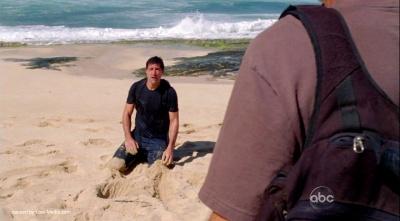

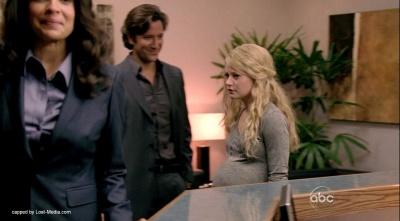
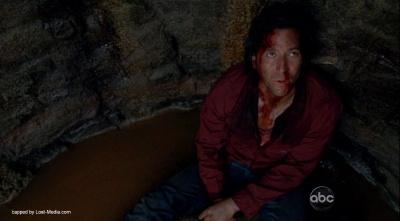
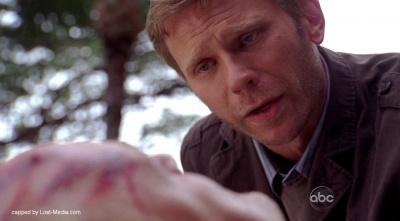
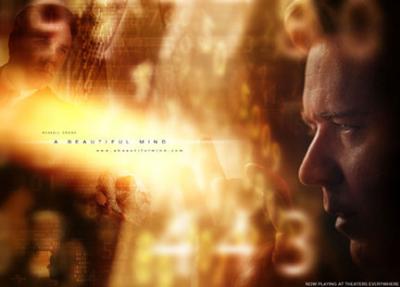




Discussion Area - Leave a Comment